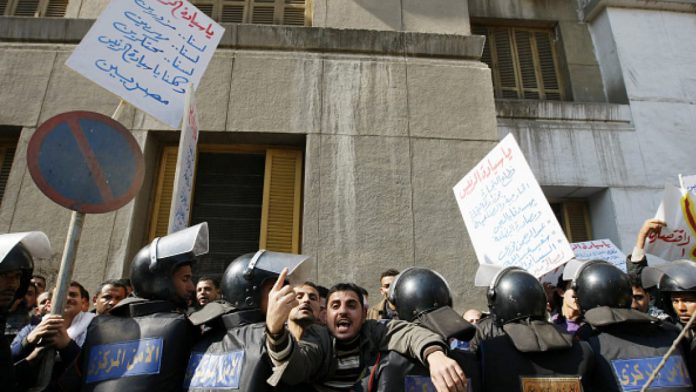In response to the worsening economic situation in Egypt, the government has introduced an exit fee for people leaving the country, as it seeks new avenues to generate revenue and tackle its massive foreign debt.
Last week, Egypt’s parliament approved a constitutional amendment that imposes a levy of 100 Egyptian pounds ($3.23) on all individuals departing the country.
However, foreign tourists departing from certain governorates, including the Red Sea, South Sinai, Luxor, Aswan, and Matruh, will pay a reduced fee of 50 pounds ($1.62).
Proponents of the legislation argue that it is necessary to maximize state income as Egypt grapples with one of the most severe financial crises in its recent history.
However, critics contend that the fee will further burden Egyptians who have already experienced a significant decline in their quality of life due to the economic downturn.
Additionally, they fear that it could deter tourists, who contribute substantial cash flow to the country’s economy, from visiting Egypt.
Opponents draw attention to the fact that similar economic conditions played a role in triggering the Arab Spring uprisings in 2011, with protesters demanding “Bread, Freedom & Social Justice.”
The approval of this legislation coincides with reports that Egypt is struggling to repay its foreign debt, with the government scrambling to secure resources to meet its mounting external borrowings, which have quadrupled over the past eight years.
Critics have criticized much of this borrowing as being allocated to what they deem as “vanity projects,” including the construction of the New Administrative Capital.
While the Egyptian government assures that it will fulfill its debt obligations, some analysts view measures like the exit fee as attempts by President Abdel Fattah al-Sisi to circumvent the comprehensive restructuring of Egypt’s economy, a step advocated by the International Monetary Fund (IMF) and many critics.
This restructuring would involve significantly reducing the influential role played by the armed forces in the country’s economy.
In addition to the exit fee, the constitutional amendment announced last Monday includes other measures aimed at bolstering Egypt’s struggling finances.
These measures encompass taxes on non-essential goods and the imposition of fees for entrance to cinemas and other entertainment venues.












